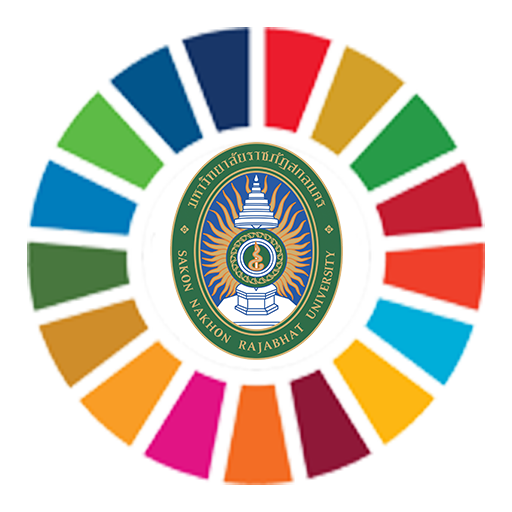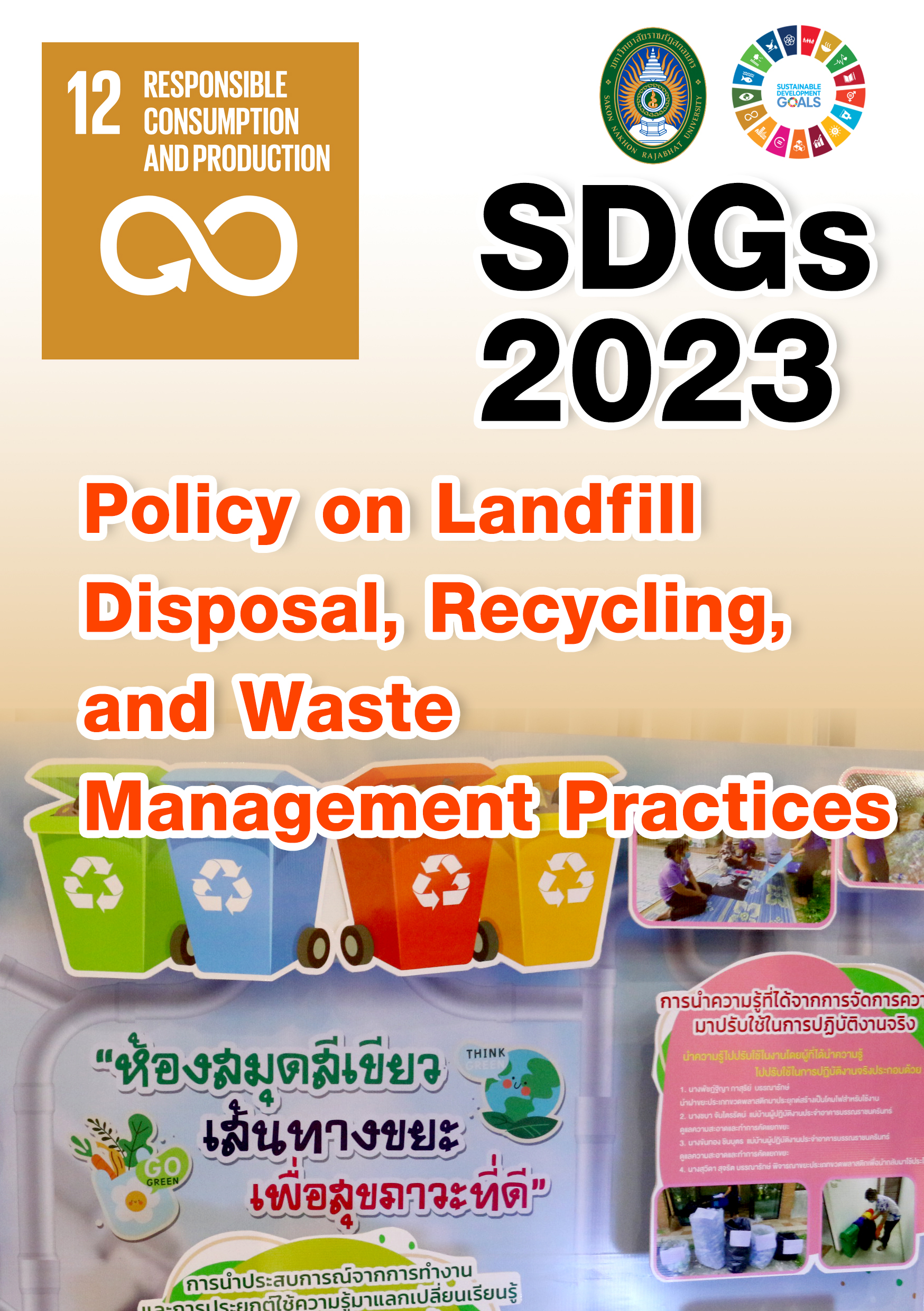This policy aims to establish responsible and sustainable practices for the management of landfill-bound waste and recycling processes at Sakon Nakhon Rajabhat University (SNRU). By minimizing landfill waste, enhancing recycling efforts, and promoting waste segregation, SNRU seeks to reduce environmental impact and foster a culture of sustainability on campus.
1. Policy Statement
SNRU is committed to reducing landfill waste and promoting recycling through effective waste segregation, education, and sustainable disposal practices. This policy outlines measures to manage waste responsibly, encourage recycling, and decrease the amount of waste directed to landfills.
2. Scope
This policy applies to all departments, faculties, students, staff, and contractors on SNRU’s campus, covering waste generated from classrooms, offices, dormitories, laboratories, dining areas, and other facilities.
3. Guiding Principles
– Waste Reduction at Source: Prioritize minimizing waste generation by encouraging reusable items, digital documentation, and responsible consumption across all university departments.
– Waste Segregation: Implement a systematic approach to segregate waste into categories such as recyclables, compostable waste, hazardous waste, and landfill-bound waste, with designated disposal stations across the campus.
– Promotion of Recycling and Composting: Actively promote recycling and composting to reduce landfill waste and create beneficial resources for campus use, such as compost for landscaping.
– Environmental Education and Awareness: Promote awareness of responsible waste disposal, recycling, and landfill impact to encourage sustainable habits within the university community.
4. Waste Management Measures
– Segregation and Disposal Bins: Provide clearly labeled, color-coded bins for recycling, organic waste, hazardous waste, and general waste at convenient locations throughout the campus to facilitate proper waste sorting.
– Recycling and Upcycling Program: Establish partnerships with certified recycling facilities and introduce an upcycling initiative to repurpose items that would otherwise contribute to landfill waste.
– Landfill Reduction Target: Set an annual target to reduce the percentage of waste sent to landfills by a measurable amount, tracking and monitoring progress to ensure continuous improvement.
– Organic Waste Composting: Implement composting units for organic waste, converting food scraps and yard waste into compost to be used for campus landscaping, thus reducing organic landfill waste.
5. Implementation and Accountability
– Each department must ensure compliance with waste management practices, emphasizing waste minimization and proper waste segregation.
– The university’s environmental committee is responsible for monitoring waste management compliance, conducting audits, and providing reports on recycling rates and landfill reductions.
– The environmental committee will conduct an annual review of waste management practices, including progress on landfill reduction goals and recycling improvements, with updates to the university community.
6. Awareness and Training
– Conduct workshops to educate students, faculty, and staff on the importance of waste segregation, recycling, and the environmental impact of landfill waste.
– Launch regular campaigns, both online and across campus, to raise awareness about waste management practices, the importance of recycling, and the impact of landfill waste.
7. Compliance and Non-Compliance
– All individuals and departments are required to adhere to the waste management policies, with non-compliance leading to corrective actions and potential fines.
– University departments are encouraged to identify areas for further improvement in waste reduction and share best practices that can be applied across the campus.
Announcement on January 2023




